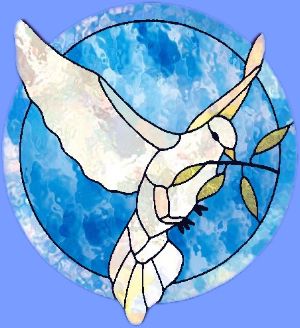A Strategic Thinking Needed to End Recurrent Ethio-Eritrean Bloodshed
 “History teaches us war begins when governments believe the price of aggression is cheap” – Ronald Reagan
“History teaches us war begins when governments believe the price of aggression is cheap” – Ronald Reagan
An Eritrean mother who lost her two sons in East Africa’s gory border bloodbath between Eritrea and Ethiopia said with tears rolling down, “I sacrificed almost everything to raise and send to school my only two sons and looked forward to their good future but war took them away from me. I will never see them again and I now feel worthless and confused.”
Another mother from Ethiopia laments, “It is like we mothers are raising our dearest children to be given to war and death at young age. When will this cycle of destruction end?”
According to Reuters some 70,000 human lives were sacrificed from 1998 to 2000, but some sources say the figure may run into over 100,000 from both sides. Families of the war victims live under sad circumstances. They are devastated and hopeless. Both countries passionately mobilized their financial and human resources into this destructive undertaking and as a result the two very poor countries suffered unprecedented number of human loss and their economic level plummeted. The emotionally charged insane showdown between the two countries gave rise to a comprehensive breakdown of resources.
The psychological and human toll is extremely huge too. The general stress, fear and insecurity have been evident across the two countries. The peoples of the two countries are in a state of suspense – they claim any time war might break out and this would mean loss of the lives of their beloved.
As a combined consequence of the war, Eritrea is now in a state of economic turmoil, its people suffering daily hunger and scarce necessities. The neighboring Ethiopia is no exception in this regard; according to some sources the country is mobilizing enormous money for military hardware and personnel for possible upcoming aggression, hence draining its financial resources that could have been spent on some constructive projects.
Both governments need to come up with sound strategies to avert going into war but rather employ other tactics to extend their interests. Without compromise aggression can never end; without concessions agreements will never be reached. The two countries should reflect on the losses they have incurred as the result of their miscalculated and dangerous policy strategies and think of a better way of resolving their differences.
They should employ communication as the only way to reach a mutual agreement and work on repairing their broken communication channels once again and move on with designing and implementing mutual diplomatic, economic and social alliances. Eritrea and Ethiopia should resort to diplomacy in order to minimize damage and ensure progress. Aggression breeds more aggression and the danger is this sentiment of aggression could possibly resonate into the coming generations giving rise to more aggression, hence perpetuating the cycle of mass death between the countries endlessly.
We need to seriously consider a most effective method to minimize and eventually encourage active confrontation between the two countries.
A prosperous Eritrea is a benefit for Ethiopia and a prosperous Ethiopia is a benefit for Eritrea. In this era of active globalization the only wise way to engage the other is through “diplomacy and cooperation”.
We should work on attaining shared economic prosperity and technological advancement. We are at the bottom with the poorest nations in the world, and we should work hard to get out of poverty by diverting the money spent on weapons to feed thousands of empty stomachs.
We should as neighbors invest on education and empower our peoples and actively participate in the global system. Our media should focus on fostering brotherhood and tolerance rather than disseminating contents of hate, stereotype which can only escalate useless sentiments of hyper nationalism and bigotry. We should employ diplomacy than aggression; we should save lives than destroy our human resources.
South Africa is a case in point. If Nelson Mandela had opted for revenge, the country would have been immersed into a destructive path of black-white racial cleansing and social chaos that would have crippled the country’s economy. But instead Mandela came up with a constructive and strategically viable idea of “tolerance and coexistence” and led the country forward onto democracy, peaceful coexistence and one of the economic powerhouses of the southern hemisphere. Let’s put a stop to destructive undertakings and start working together.
Human life is the most precious and important factor for one country’s social health and economic development. One human life lost is a huge resource wasted. And hostility has never been a solution for differences!
“What a difference does it make to the dead, the orphans and the homeless whether the mad destruction is wrought under the name of totalitarianism or the holy name of liberty and democray?” – Ghandi
Amanuel Isak, South Africa
This email address is being protected from spambots. You need JavaScript enabled to view it.


![[AIM] Asmarino Independent Media](/images/logo/ailogo.png)
